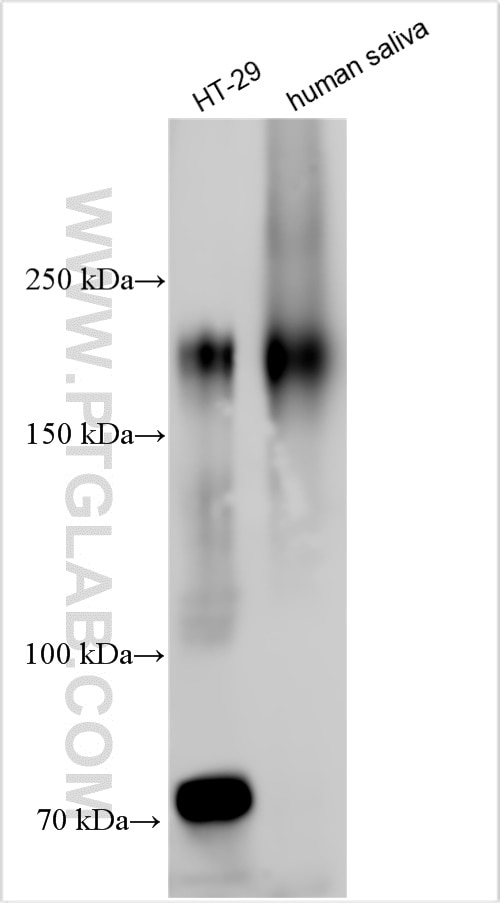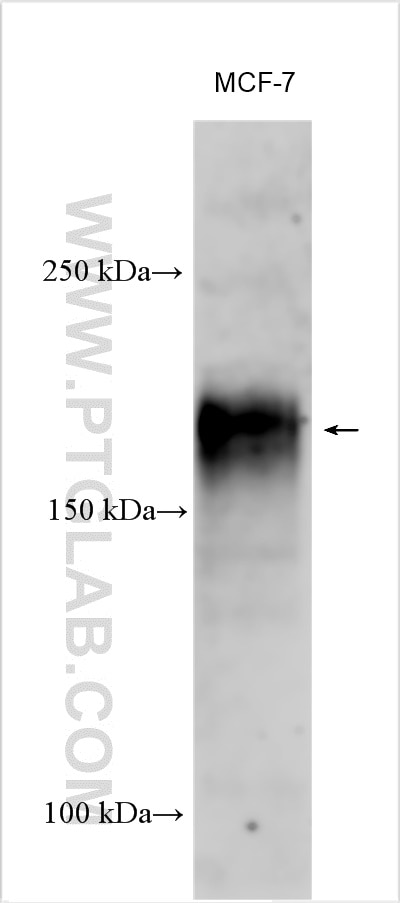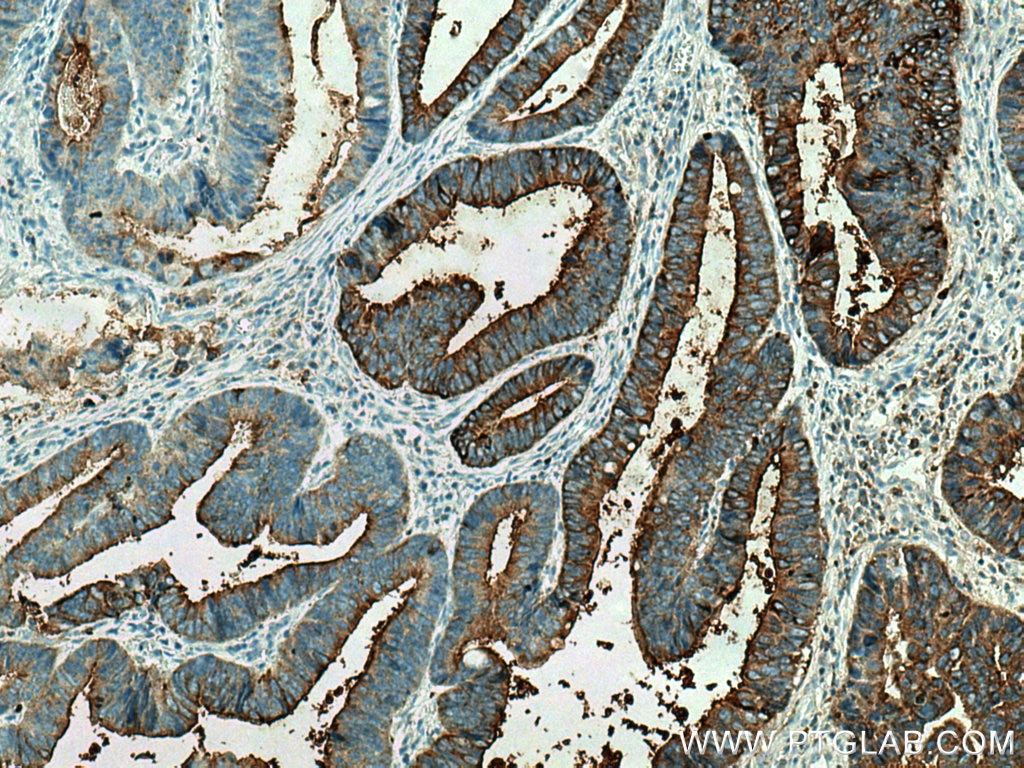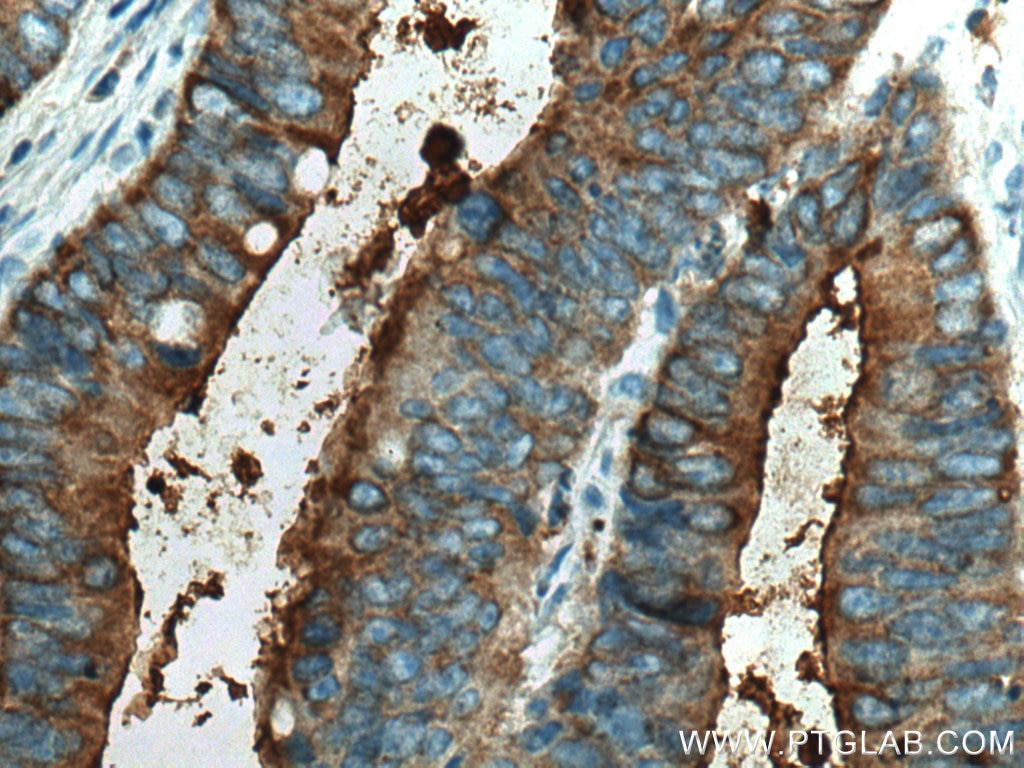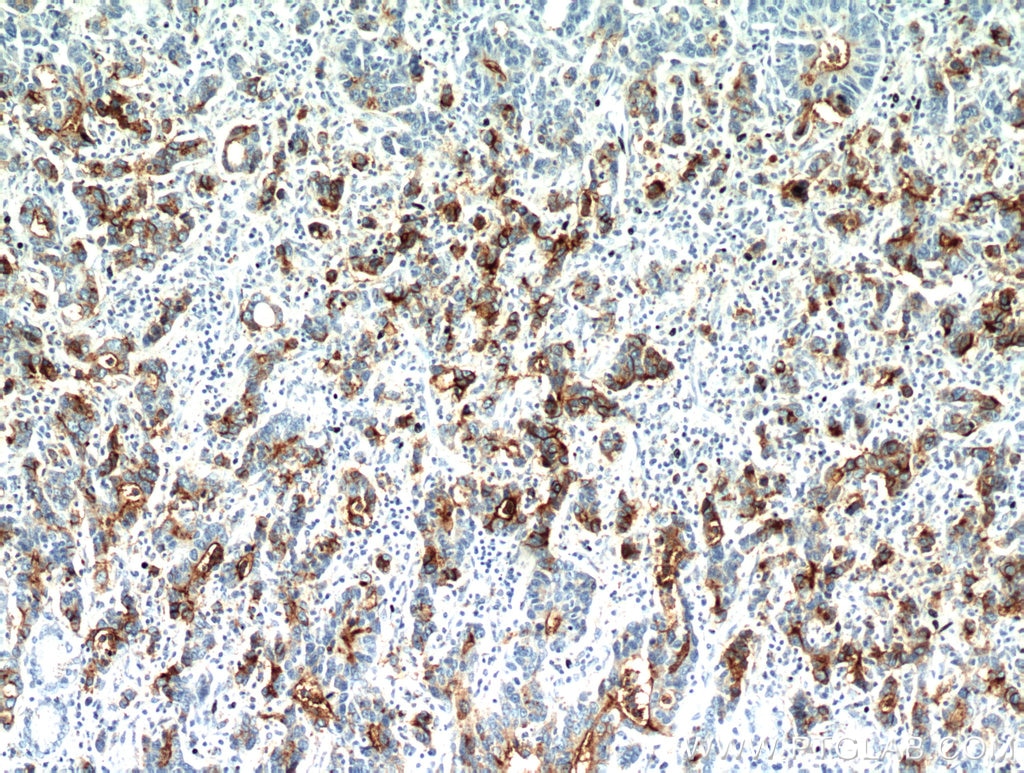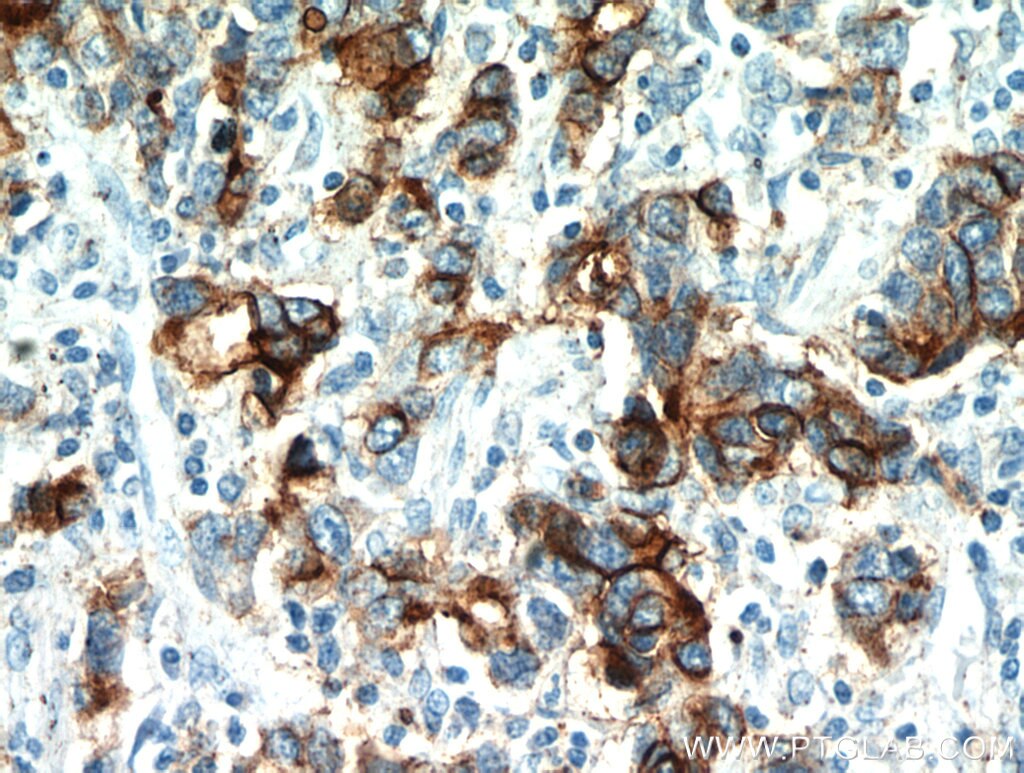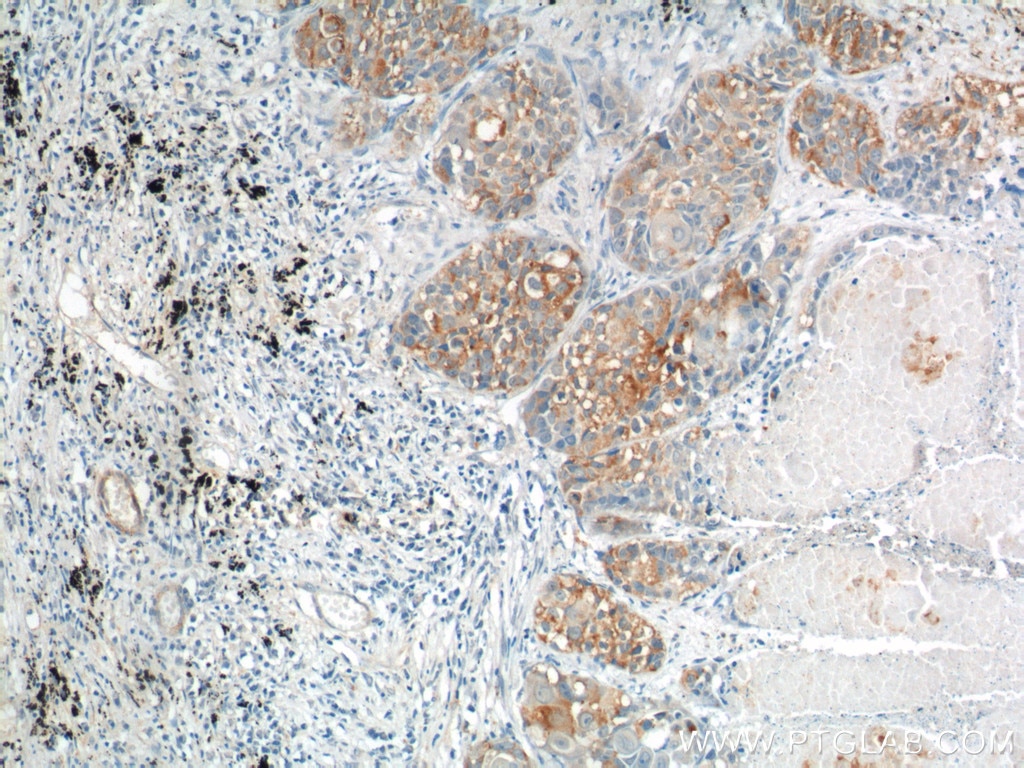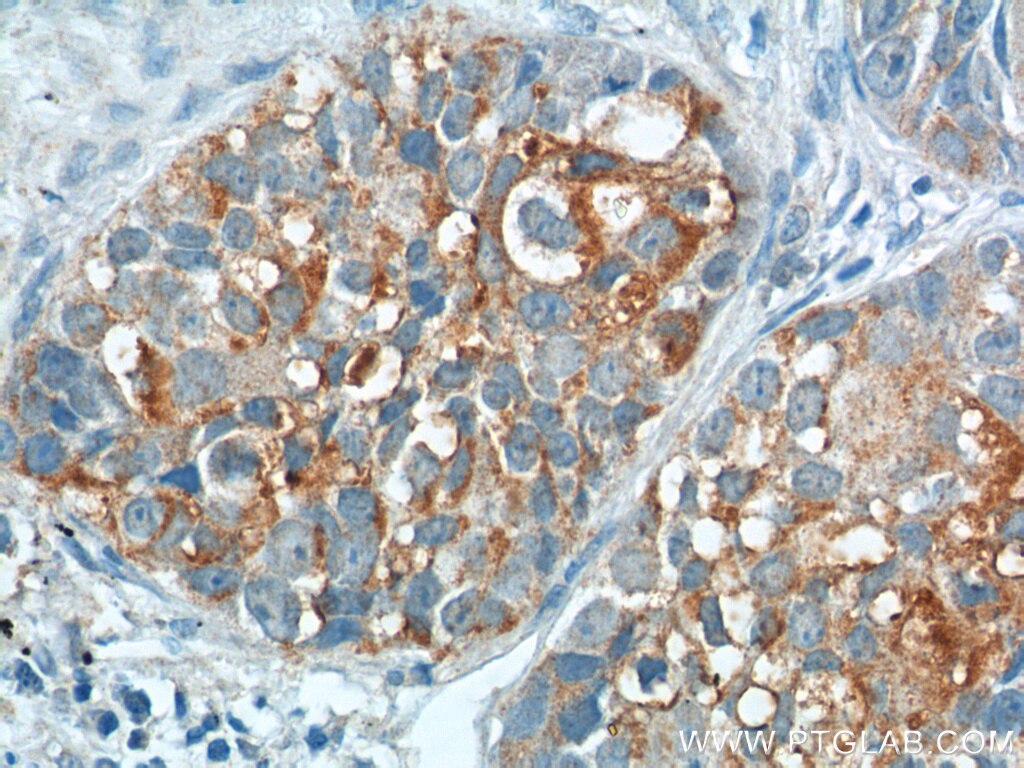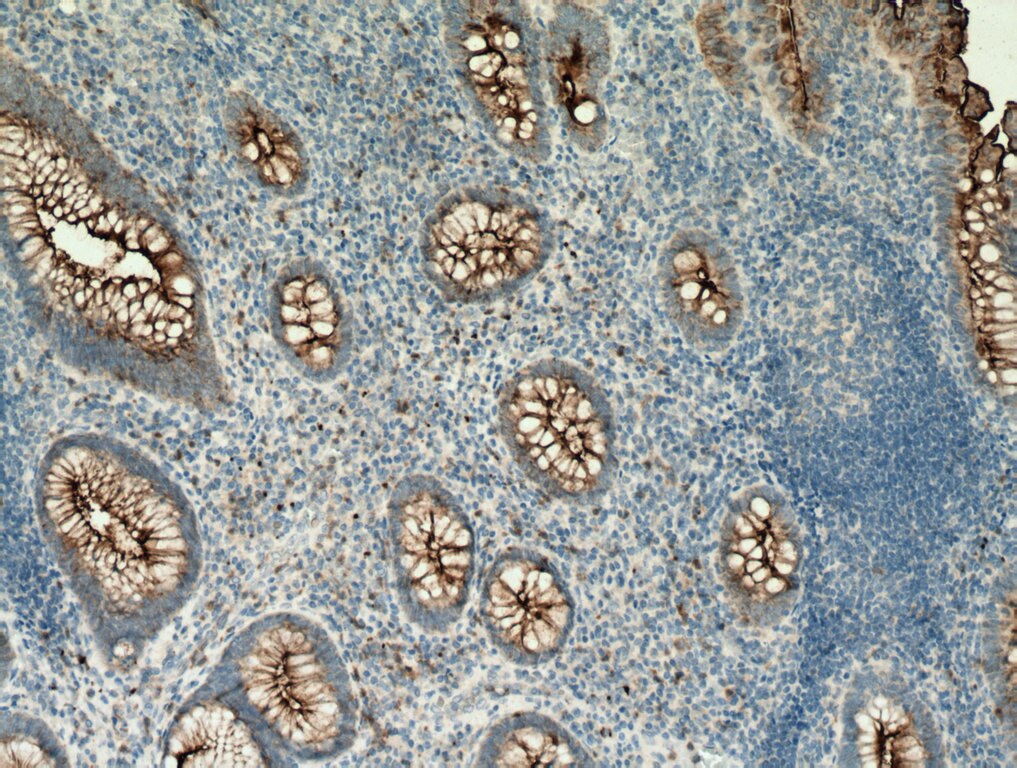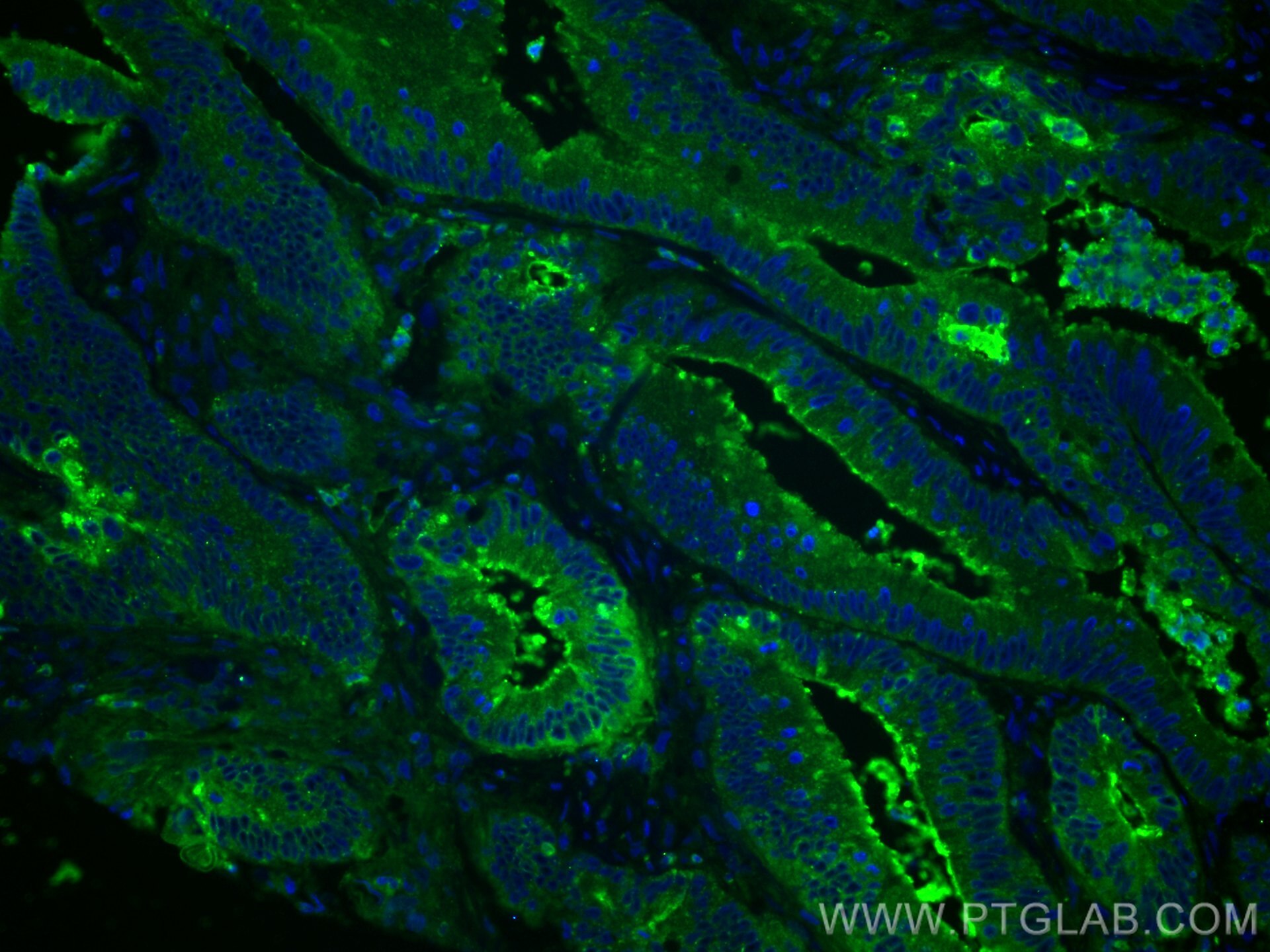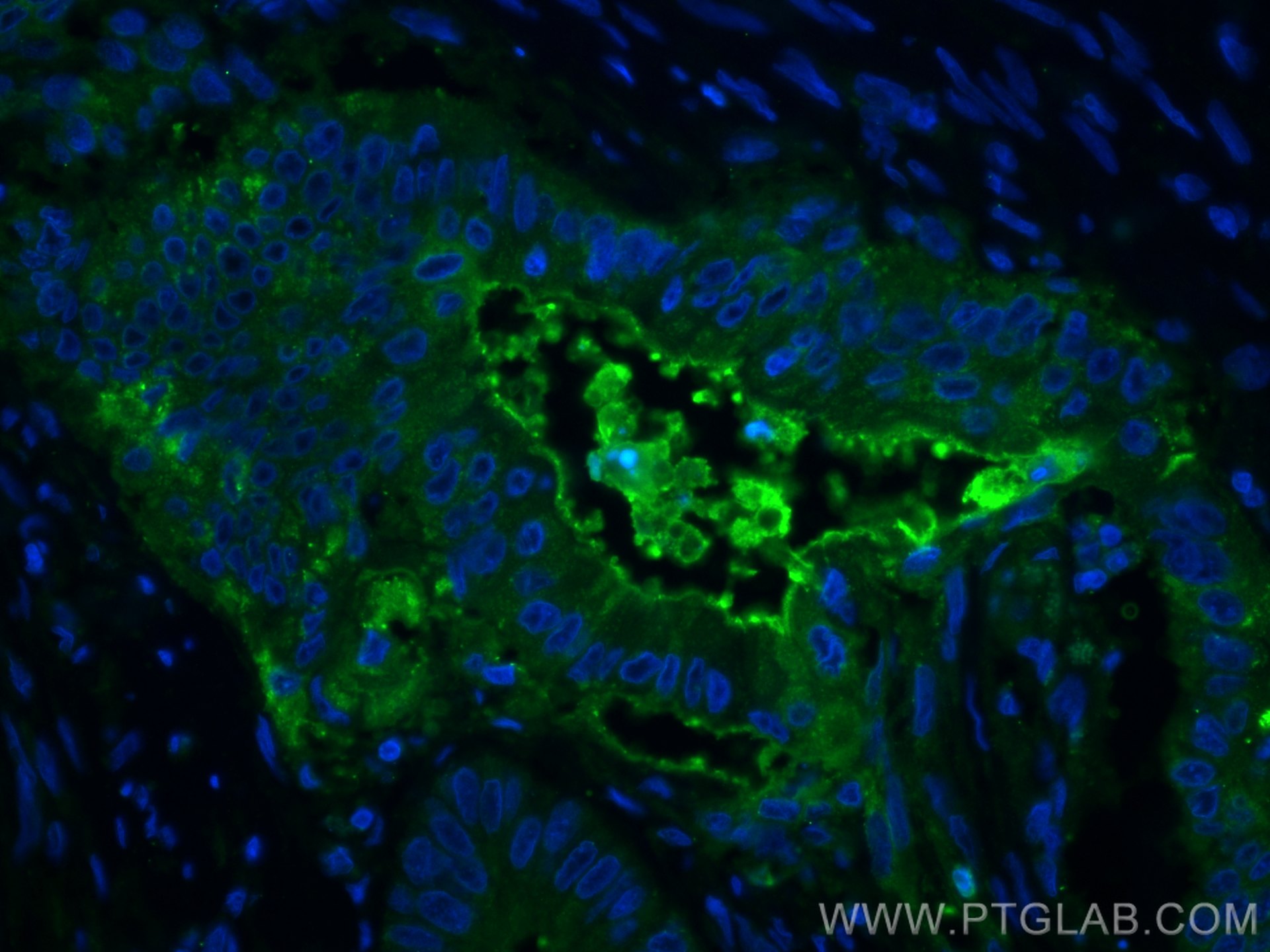- Featured Product
- KD/KO Validated
CEA/CD66e Polyklonaler Antikörper
CEA/CD66e Polyklonal Antikörper für WB, IHC, IF-P, ELISA
Wirt / Isotyp
Kaninchen / IgG
Getestete Reaktivität
human und mehr (1)
Anwendung
WB, IHC, IF-P, chIP, ELISA
Konjugation
Unkonjugiert
Kat-Nr. : 10421-1-AP
Synonyme
Geprüfte Anwendungen
| Erfolgreiche Detektion in WB | HT-29-Zellen, MCF-7-Zellen |
| Erfolgreiche Detektion in IHC | humanes Kolonkarzinomgewebe, humanes Appendizitis-Gewebe, humanes Lungenkarzinomgewebe, humanes Magenkrebsgewebe Hinweis: Antigendemaskierung mit TE-Puffer pH 9,0 empfohlen. (*) Wahlweise kann die Antigendemaskierung auch mit Citratpuffer pH 6,0 erfolgen. |
| Erfolgreiche Detektion in IF-P | humanes Kolonkarzinomgewebe |
Empfohlene Verdünnung
| Anwendung | Verdünnung |
|---|---|
| Western Blot (WB) | WB : 1:500-1:2000 |
| Immunhistochemie (IHC) | IHC : 1:200-1:800 |
| Immunfluoreszenz (IF)-P | IF-P : 1:50-1:500 |
| It is recommended that this reagent should be titrated in each testing system to obtain optimal results. | |
| Sample-dependent, check data in validation data gallery | |
Veröffentlichte Anwendungen
| KD/KO | See 1 publications below |
| WB | See 5 publications below |
| IHC | See 4 publications below |
| ChIP | See 1 publications below |
Produktinformation
10421-1-AP bindet in WB, IHC, IF-P, chIP, ELISA CEA/CD66e und zeigt Reaktivität mit human
| Getestete Reaktivität | human |
| In Publikationen genannte Reaktivität | human, Maus |
| Wirt / Isotyp | Kaninchen / IgG |
| Klonalität | Polyklonal |
| Typ | Antikörper |
| Immunogen | CEA/CD66e fusion protein Ag0672 |
| Vollständiger Name | carcinoembryonic antigen-related cell adhesion molecule 5 |
| Berechnetes Molekulargewicht | 77 kDa |
| Beobachtetes Molekulargewicht | 180-200 kDa, 77 kDa |
| GenBank-Zugangsnummer | BC034671 |
| Gene symbol | CEA |
| Gene ID (NCBI) | 1048 |
| Konjugation | Unkonjugiert |
| Form | Liquid |
| Reinigungsmethode | Antigen-Affinitätsreinigung |
| Lagerungspuffer | PBS with 0.02% sodium azide and 50% glycerol |
| Lagerungsbedingungen | Bei -20°C lagern. Nach dem Versand ein Jahr lang stabil Aliquotieren ist bei -20oC Lagerung nicht notwendig. 20ul Größen enthalten 0,1% BSA. |
Hintergrundinformationen
Carcinoembryonic antigen (CEA), also known as CEACAM5 or CD66e, is a cell surface glycoprotein belonging to the immunoglobulin superfamily, mainly serving as a cell adhesion molecule mediating intercellular contact by both homophilic and heterophilic binding (PMID: 21731662). CEA inhibits anoikis and plays a role in tumorigenesis and metastasis. CEA has been found to be overexpressed in a wide variety of human cancers, including colon, breast, and lung (PMID: 17167768). CEA is a tumor marker and is routinely exploited for diagnosis.
Protokolle
| PRODUKTSPEZIFISCHE PROTOKOLLE | |
|---|---|
| WB protocol for CEA/CD66e antibody 10421-1-AP | Protokoll herunterladen |
| IHC protocol for CEA/CD66e antibody 10421-1-AP | Protokoll herunterladenl |
| IF protocol for CEA/CD66e antibody 10421-1-AP | Protokoll herunterladen |
| STANDARD-PROTOKOLLE | |
|---|---|
| Klicken Sie hier, um unsere Standardprotokolle anzuzeigen |
Publikationen
| Species | Application | Title |
|---|---|---|
Transl Res Molecular signature of interleukin-22 in colon carcinoma cells and organoid models. | ||
J Cell Mol Med CD39 Contributes to the Ability of Cell Invasion in Heterogeneity of Colorectal Cancer | ||
Int J Biol Sci FBW7 suppresses metastasis of colorectal cancer by inhibiting HIF1α/CEACAM5 functional axis.
| ||
Gene Ther Lentivirus-mediated RASSF1A expression suppresses aggressive phenotypes of gastric cancer cells in vitro and in vivo. | ||
World Neurosurg Discovery of Aquaporin-1 and Aquaporin-4 Expression in an Intramedullary Spinal Cord Ependymal Cyst: Case Report. | ||
PLoS One Correlation of alpha-1 antitrypsin levels and exosome associated neutrophil elastase endothelial injury in subjects with SARS-CoV2 infection |
Rezensionen
The reviews below have been submitted by verified Proteintech customers who received an incentive for providing their feedback.
FH Claire (Verified Customer) (09-30-2024) | A repeat order of an antibody previously used in colorectal adenocarcinoma research as this produced excellent images previously, we are now aiming to optimise this antibody for pancreatic work
|
